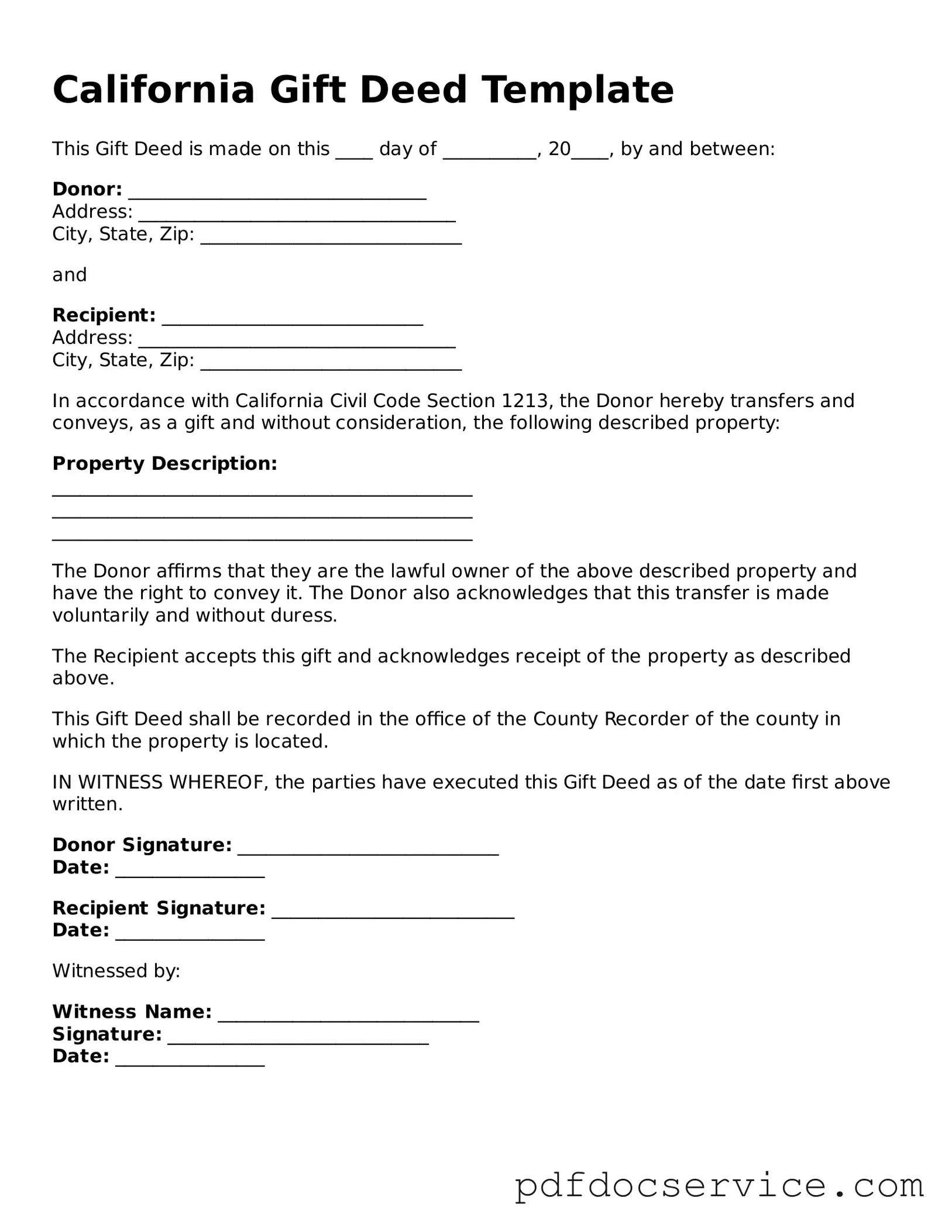Printable Gift Deed Template for California
A California Gift Deed form is a legal document used to transfer ownership of property from one person to another without any exchange of money. This form facilitates the gifting process, ensuring that the transfer is recognized by the state. Understanding the nuances of this form can help both givers and recipients navigate the complexities of property ownership.
Open Gift Deed Editor

Printable Gift Deed Template for California
Open Gift Deed Editor

Open Gift Deed Editor
or
Get Gift Deed PDF
Finish the form now and be done
Finish Gift Deed online using simple edit, save, and download steps.